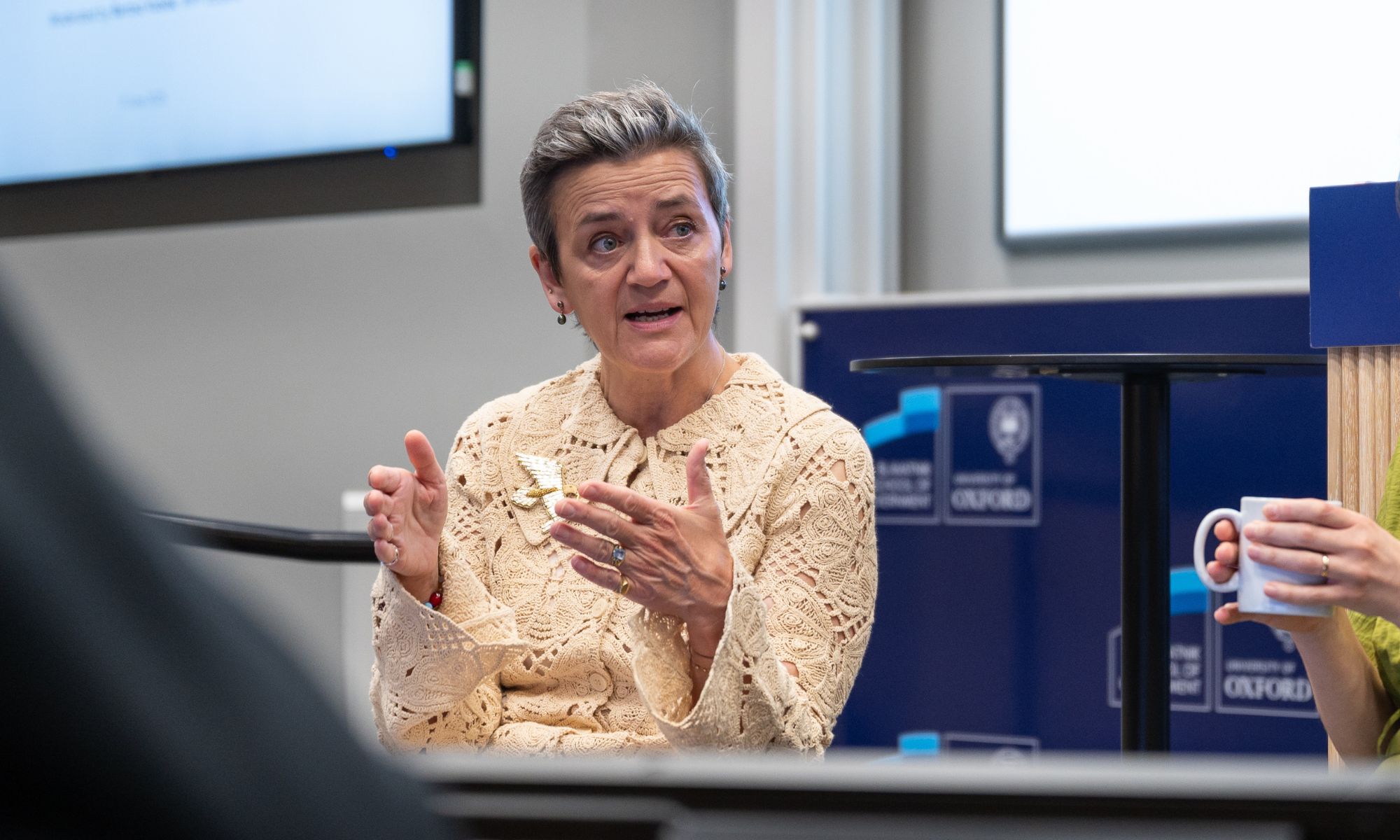Margrethe Vestager on mentoring future public leaders
We spoke to Margrethe Vestager, World Leaders Fellow, about her move out of high public office, following a distinguished career in domestic and European politics.

Margrethe Vestager, former Executive Vice President of the European Commission, joined the School last year as one of our inaugural World Leaders Fellows.
The Blavatnik World Leaders Fellowship, a new initiative from the School, is for global leaders who are transitioning from steering their countries or organisations to the next stage of their public leadership journey. It offers time and space to develop thinking on how their experiences can positively influence global policy, politics and governments.
Over the course of a year, the Blavatnik World Leaders Fellow mentor and engage with students and alumni, convene other global leaders and explore innovative approaches to government.
We spoke to Margrethe about her move out of high public office, following a distinguished career in domestic and European politics.
“Coming here to the School seems a very good way to transition out of something; a constructive process in which you can think about what to do next and restart the learning and reflection processes at a different level."
“I like interacting with young people, to see if what I have learnt through the years can be relevant for them. What gets me out of bed in the morning is to see if I can help other people have more opportunities in their lives – there are no guarantees in life on what you will accomplish. But the least you can do in society is to enable people, enable agency.”
Who or what has been your biggest influence as a leader?
“What [former US Secretary of State] Madeleine Albright did during the Balkan wars was very impressive. She called every European leader every week to knock heads together, a continuous personal engagement. She was so calm and grounded. Madeleine engaged where she didn’t have to.”
Can you describe any key takeaways from your time so far at the School?
“If you look at the students here, you can be hopeful about the world. When you come into this building, you sense a culture of people listening to one another – not necessarily agreeing but listening to one another and seeing each other as a resource for their own learning. That I find very inspiring."
“This is a space where you can speak your mind, and some may disagree with you, but they will do it in a way that is not demeaning. This is not a school where students learn to be more technocratic, it is a school where you learn to be more engaged and how to enable change.”
What advice would you give to the young leaders here about the kind of challenges that they might face in their public service careers?
“Use the trusted network that you get here in the School for advice; your peers will speak their minds, not to undermine you but to qualify what you are doing. And choose your battles – never threaten to leave a discussion or a negotiation, as someone might actually take you up on it, and then you have no place at the table. If you have to make a threat (and that is never a given), also threaten to stay.”
